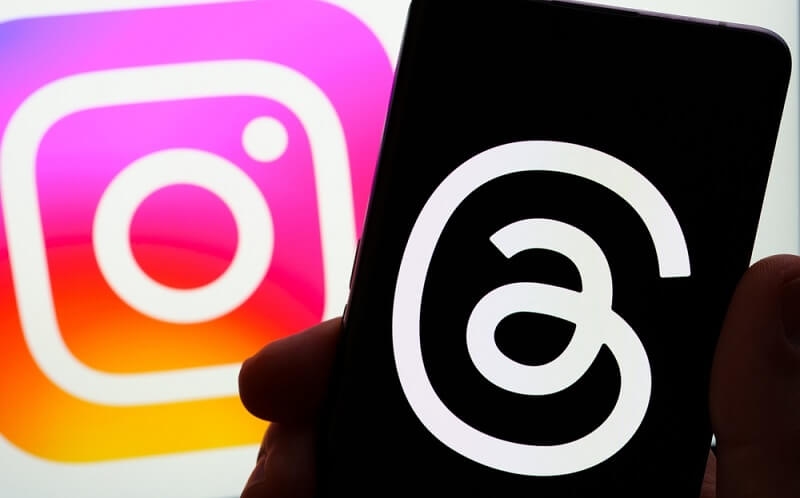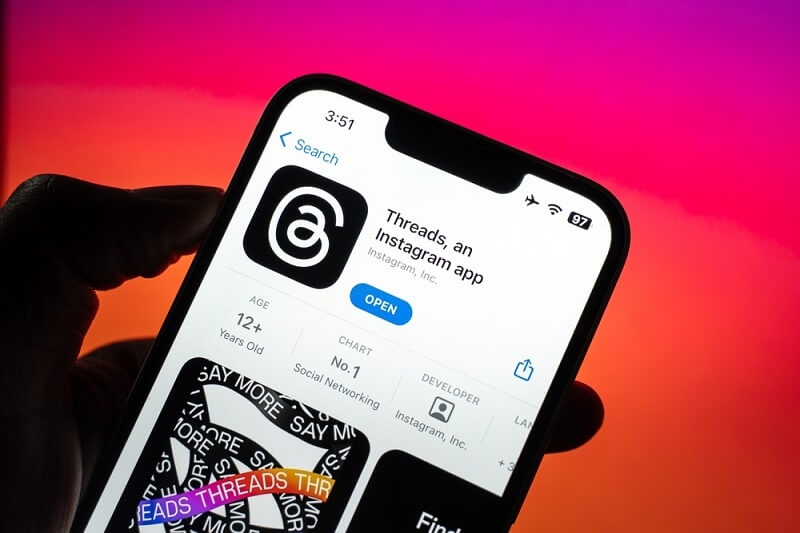
Threads is an Instagram product that is changing how individuals can use social media. Thanks to its new approach to discussions, chatting, and confidentiality, Threads is repositioning people against their number one plans and uses Twitter and Facebook. However, what is so different about Threads? How come it is so rapidly expanding and its users number in millions across the USA and the rest of the world? So why is Threads making headlines uproar, what makes it different from the traditional apps, and what can be expected of the upstart in social media?
In contrast to the normal app, where the thing is based on long threads or the interaction within the public circles, Threads allows feeling the conversation more closely and not so overwhelming anymore.
The users are observing the change in the manner of posting. On Twitter or X, a lot of users had pressure to be witty, political, or performative. Threads, in its turn, is a more casual place, courtesy of its Instagram integration. It is a digital chat with many people.
The short updates, the jokes, the opinions, and even the small life updates are the norm. The application motivates the user to update more regularly and discuss in small conversations without the redundancy and pessimism that dominate other applications.
The minimalist design of Threads helps with this. There are no trending hashtags, no over-complicated features, and no ads—at least for now. This makes the user experience smooth and focused entirely on conversations and connections.
The biggest comparison people make is between Threads and Twitter. But how do they stack up?
Since its launch, Threads has been directly compared to Twitter because of its format—short text-based posts, reposting (like retweets), and replies. However, the Threads vs Twitter user comparison shows significant differences in both audience and tone.
Twitter, especially after recent changes, has become a place for breaking news and polarized debates. Threads feels lighter, more community-driven, and less confrontational.
Younger users, especially Gen Z and Millennials, have been quicker to adopt Threads. They prefer its connection with Instagram and its softer, more familiar vibe. Twitter still holds sway among journalists, tech communities, and public figures, but Threads is pulling in influencers, creators, and casual users in droves.
The growth of Threads has been faster than many experts predicted, especially in the United States.
Within just a few hours of launch, Threads hit over 10 million signups, and by the end of its first week, it crossed 100 million. According to recent Threads growth metrics USA, it has quickly become one of the fastest-growing social apps in history.
Much of this success is due to its Instagram integration. People don’t need to build a new audience from scratch. You simply log in with your Instagram account and take your followers with you.
Threads is also seeing more activity from digital creators, lifestyle influencers, and brand accounts. This shows a trend toward using the platform not only for fun posts but also for growing personal brands and communities, without the distractions of traditional feeds.
One of the things that’s made Threads different is how it handles privacy and user control.
The privacy in the Threads app is beginner-friendly. You can control who follows you, who can reply to your threads, and whether your profile is public or private. These options are presented clearly, making them easier to manage than on some older platforms.
However, Threads has not escaped criticism. Since it is owned by Meta, some users are cautious about how their data is handled. Still, compared to the chaos on other apps, Threads provides a more controlled and transparent experience, especially for those already using Instagram and familiar with Meta's privacy policies.
Another way Threads is disrupting traditional platforms is through its content and comment management strategies.
One of the challenges Twitter has faced in recent years is moderation. As spam, misinformation, and toxic content grow, platforms struggle to maintain balance. Threads takes a different approach.
The Threads content moderation model builds on Instagram’s existing tools. This includes filters for hate speech, harassment, and spam. Users can easily report content or block accounts, and moderation teams are proactive rather than reactive.
For young users, this approach is particularly important. Threads automatically sets accounts for users under 16 to private and limits interactions from unknown users. These steps make Threads feel safer and more welcoming compared to older platforms, where moderation is inconsistent.

From its Instagram roots to its clean interface, there are many reasons why Threads is on the rise.
Because Threads is tied to Instagram, it doesn’t feel like a new or complicated app. Users don’t have to rebuild their social circle or learn a whole new interface. This lowers the entry barrier and encourages quicker adoption.
With no hashtags, no trending tabs, and no news clutter, Threads feels more intimate. This helps users focus on connection over performance, leading to genuine engagement rather than chasing likes or retweets.
Early users have shared that Threads feels more friendly and stress-free. The tone is more supportive, and there’s less pressure to be perfect or “go viral.” This atmosphere is pulling in users who felt burned out from traditional platforms.
Threads is still in its early stages, but its impact is already being felt.
As it grows, Meta is expected to introduce ads, trending topics, and possibly DMs. These features may change how Threads is used, but if the platform stays true to its roots—simple, clean, and conversation-first—it can maintain its unique appeal.
Other apps like Twitter (now X), Mastodon, and Bluesky are watching closely. Some are updating their features, while others are trying to strengthen communities. But none have the same combination of ease of use, rapid growth, and existing user base that Threads enjoys.
One of the most interesting future plans for Threads is its planned integration with the fediverse, a group of decentralized social platforms like Mastodon. This would allow Threads users to interact with people outside the app, giving users more control over their content and visibility.
The Threads Instagram hack is not a trend; it is an indication of what people would prefer to be doing on the internet. People have abandoned the chaotic, advertisement-infested applications and are shifting towards platforms that are more secure, natural, and user-friendly. Threads is new, whether you are a frequent user, a creator of content, or simply cannot take it off the old social media. And it could very well reinvent the way we interact, share, and create online communities as it matures and develops.
This content was created by AI